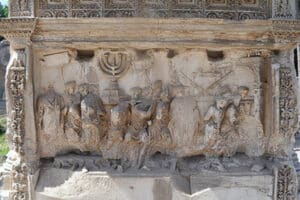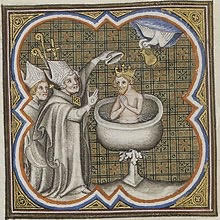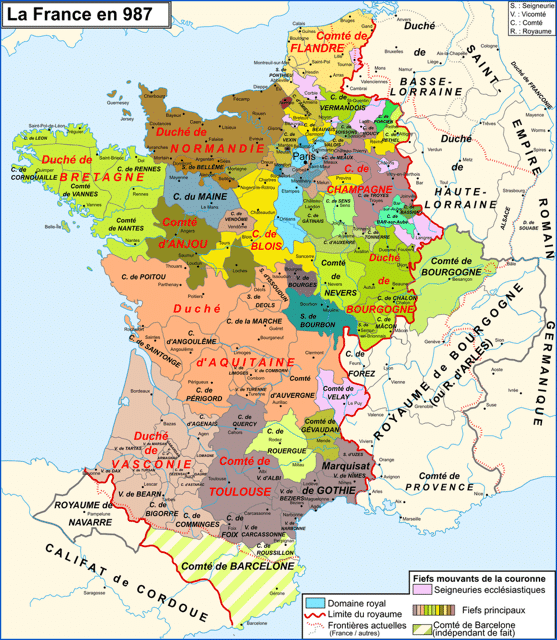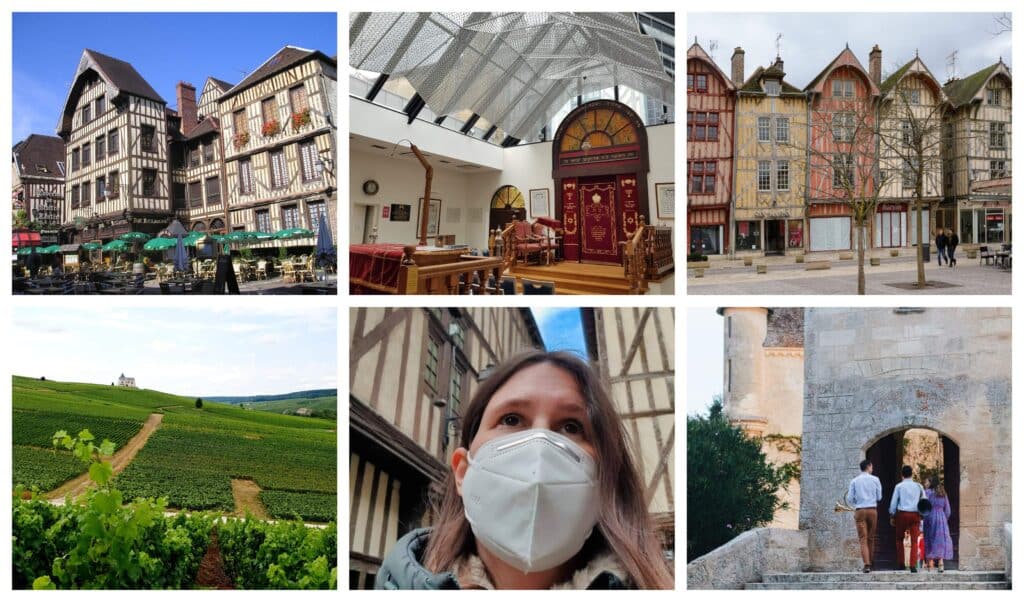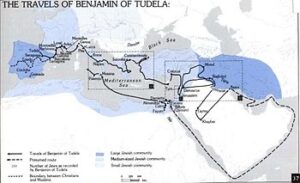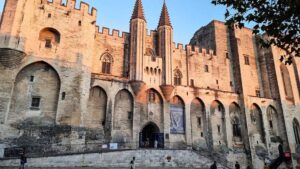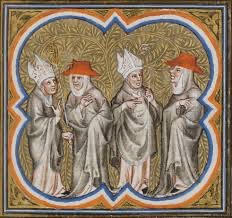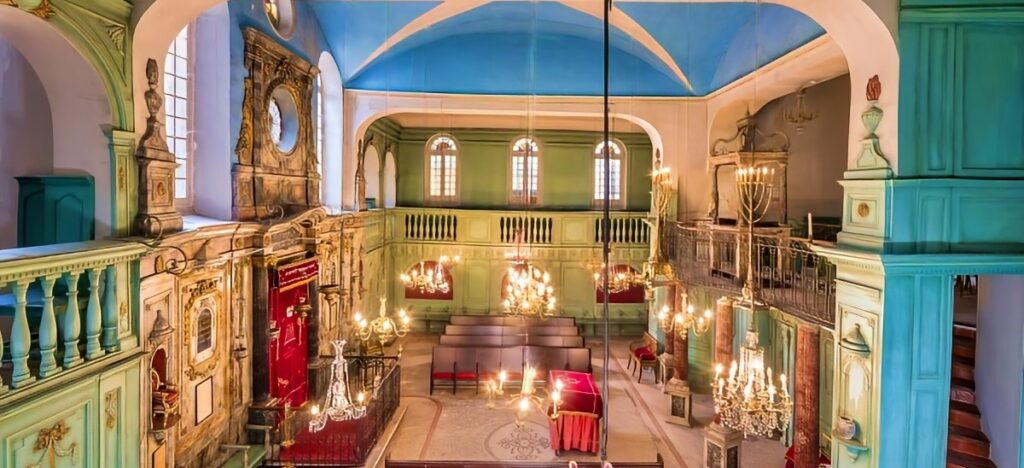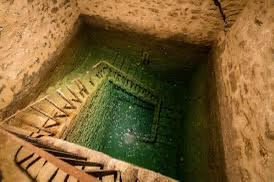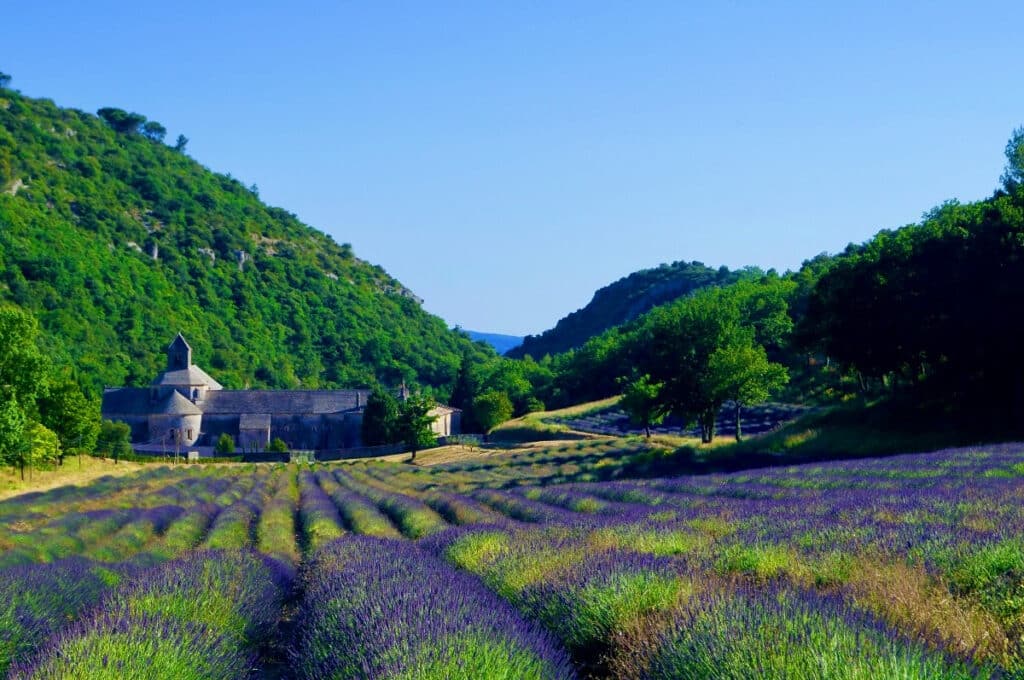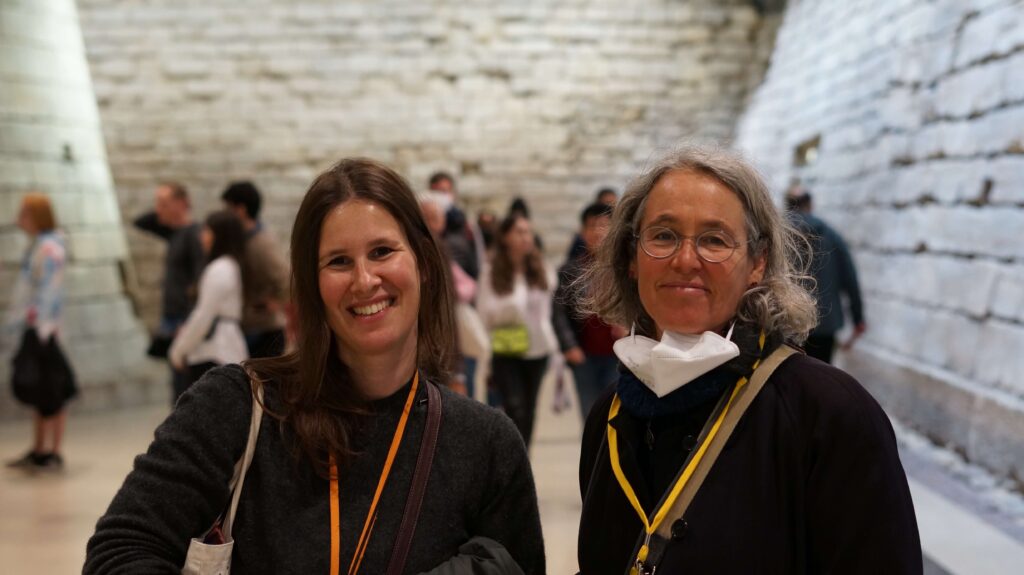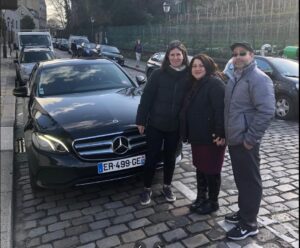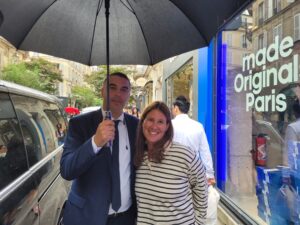I am sure you have dreamed of visiting the beautiful region of the Provence in the south of France.
The climate is lovely, the landscapes are breathtaking, the food is amazing and the famous lavender fields are unique.
But did you know that the Provence had a very interesting Jewish history, and that for once, it was a rather positive history with less discrimination than anywhere else in France?
Yes, in the early middle-ages, the counts of Provence did not follow the dictate of the church to force Jews into conversion. They also allowed the Jews to work freely which pushed them to become skilled physicians, wealthy merchants.
In some cities the Jews worked in the administration of the courts.
Jews of Provence
How did this happen and why was the life of the Jews in other parts of France so different?
Let’s find out!
The Jews Arrival to Provence
The Jews arrived in France in the 1st century after the destruction of the second Temple in Jerusalem.
France was part of the Roman empire in those days.
The Jews settled along the Mediterranean coast and along the main rivers in France, like the Rhone, the Seine, the Garonne.
The Jews, the Romans and the local French pagans lived side by side.
In 320, the Roman Empire made Christianity the State’s religion.
And for the very first time in French history, a king, Clovis, was baptized in 496.
From that moment on, the French Christians wanted to convert Jews to the Christian belief.
Jews were considered stubborn, with a “stiff neck”, as they refused to recognize Jesus as their savior and Jews were held responsible for the death of Jesus.
In those early days of the dark middle-ages France was a very small country, basically the size of a small region, located around Paris.
The rest of the country was divided in other kingdoms, duchies, counties, with independent princes, counts and barons.
The Jews Evictions from Provence
From 1182, several evictions of Jews were decided by French kings, for religious and financial reasons.
Religious, because Jews still did not believe in Jesus and financial, because when expulsed, their belongings were confiscated.
Indeed, the French kings were in desperate need of money to pay for their expenses in court, ongoing wars, ransoms that had to be paid to free kidnapped royal family members and of course the Crusades.
For a period of 100 years, the kings evicted the Jews and then forced them back, evicted them again, each time taking their money and possessions, until the final eviction in 1394.
The Jews who stayed in France
But when the Jews were evicted, they did not go far.
In general, they went to these separate counties like the Champagne – see Rashi, in Troyes, – the Provence, Burgundy and Languedoc regions, all independent states.
The leaders of these states were more liberal, tolerant and pragmatic.
Liberal and tolerant because in their states the church had much less influence than in France.
Pragmatic, because they knew that the Jews brought trade, knowledge, connections and wealth.
Also, in the south of France, the ancient Roman law was still predominant. In Roman law, contracts signed between people were important. Whoever signed a contract was in his rights, no matter his origins. This meant that Jews had the same rights and same obligations as anybody else.
The Jews and Trencavel in Béziers
In Béziers, Carcassonne and Albi the Jews were protected by the noble family Trencavel.
In 1170, the Trencavel family was very close to a famous rabbi, Abraham ben David.
Under their protections the Jews were wealthy and built hospitals and Talmudic schools.
Many rabbis became skilled physicians and were much in demand among the gentiles. They were considered better than their Christian colleagues.
By the way, did you know that rabbis did not earn a salary in those days and that this is why so many of them became physicians to make a living ?
The Jews and King René in Provence
Later, in Toulouse, King René had his own personal Jewish physician.
Nevertheless, the Jews almost always lived in cities, in separate quarters called “carrières.”
Even though the Jewish and Christian population did not really mix, life was much easier for the Jews than it was in France.
Even more so in the cities in the Provence and Languedoc, where the counts and dukes were more tolerant and less depending on the church.
In the Provence there was a long tradition of acceptance of the presence of Jews; an historian wrote that in the 5th century the Jews of the city of Arles wept when the local bishop died and participated in the funeral march.
And when in 1165 Benjamin of Tudela made his “around the world trip to visit the communities where his brothers lived from Europe to China” he counted 200 Jews in Arles and even more in Montpellier.
What is special with Jewish Provence history?
In the 14th century a lot of disasters happened, like wars and the plague. People were poor, starving and desperate. And of course, they blamed the Jews for all their troubles.
As a result, the Jews were massacred everywhere.
But not in the Provence.
Because in the Provence ruled a Pope.
– What ? Didn’t the Popes always ruled from Rome ?
– No they didn’t.
The Jews of the Pope
Yes, the head of the Christian church was the Pope, and the Pope ruled in Rome.
Traditionally, as it is still currently done until today, the cardinals held elections among them to vote for a new pope, and in those days the Popes were always French.
But in the 14th century there was a lot of political trouble in Rome with gangs fighting for the power.
So one of the Popes, Clement, left for France for a summer vacation in 1309, and as he loved the peace and quiet, he decided to stay in France.
He settled in Avignon, and built himself a palace.
After he died, 8 other Popes lived and ruled in Avignon until 1377.
The 8 Popes that came after Clement, enlarged and embellished the palace and it became the largest gothic building ever built in Europe.
It had at the time the largest library with 2000 manuscripts.
The “Palais des Papes“, palace of the Popes, still dominates Avignon today.
It stands proudly on a protruding rock above the river the Rhone.
Not only did the Popes continue to enlarge and embellish their palace, they also bought the city of Avignon from the princess who owned it, so the city and its surroundings became the Pope’s property.
The 9 Popes that ruled from Avignon were rather tolerant, loved the arts and science and they protected the Jews from being murdered, discriminated and evicted.
A very special situation occurred between 1379 and 1399, the last 20 years of rule of the Popes in Avignon.
During these 20 years, there were two Popes ruling in the same time, one from Rome and another Pope from Avignon.
In 1379, the cardinals in Rome elected an Italian Pope. As a result, some of the French cardinals were scandalized because they wanted to continue the tradition of always voting for a French Pope.
So they organized second elections and voted for a French Pope.
This French Pope went to Avignon and ruled there while the Italian Pope was ruling from Rome.
During these 20 years, the Jews were still being protected by the Popes in Avignon.
In this period, 40.000 people lived in Avignon, which made it one of the major cities in Europe.
The Jews being protected by the Popes of Avignon were called “ The Jews of the Pope.”
Their business in spices, developing science, medicine, Talmud learning, and international trade flourished, thanks to the Popes.
After the last Pope in Avignon died, the center of the Christian church returned to Rome.
The Jews remained in the area of Avignon and continued to flourish, and to have a relatively quiet life, compared to other areas in France where there were no Jews allowed at all.
The kings of France gradually gained power and land, through marriages, war and agreements.
All the independent regions where Jews led a relatively quiet life were annexed, and life for the Jews became difficult and often impossible.
But in the region where the Popes had governed, the Jews remained relatively free, relatively integrated in their cities and relatively prosperous.
The Judeo-Provencal language
Nevertheless, they lived in separate neighborhoods, like ghettos, that were closed by Gates during the night.
They spoke their own language, called Shuadit, a mix of Hebrew, Spanish and the local dialect.
What to see in Jewish Provence?
When you visit the Provence, with its breathtaking countryside, charming villages and blooming lavender everywhere, you can still see the remains of this rich Jewish life.
In the small town of Carpentras you can visit the oldest still functioning synagogue of France .
The building dates back to 1367 and stands on the foundation of an older synagogue, built when France was still part of the Roman empire.
This beautiful synagogue has two levels, 2 bread ovens and a mikve hewn out of the rock, still fed by source water.
Carpentras
Carpentras also has the oldest remaining graveyard in France, with tombs that go back to 1343.
In the 18th century, Carpentras had the largest Jewish community in France.
More than 200 Jewish families lived and worked in this tolerant city, they counted for 10% of the city’s population.
The graveyard was vandalized in 1990 and this created a huge uproar and protest in France against antisemitism. But, François Mitterand, the French President, marched with 200.000 people in a silent march through Paris to show his solidarity with the French Jews.
Medieval Mikve
In Pernes Les Fontaines, one medieval mikve was preserved and a second was found during construction works in 2016. Both mikvaot are about 1000 years old, and are still fed by natural sources.
And in Cavaillon, famous for its sweet melons, you can visit the beautiful and elegant synagogue, rebuilt in the 18th century during the reign of Louis the 15th, who was the first French king to give some civil rights to the Jews of his country.
Avignon
Of course, you should also visit the Palace of the Popes in Avignon and when you stroll through the city, the names of the streets will remind you of the presence of Jews.
Jacob street, Jerusalem Square and the street of the Jews are only some examples.
During the revolution all the Jews in France received civil rights and the they gradually integrated into French society and became really part of the country.
Jews of Province Today
World War 2 ended this period.
Today, you can find small but vibrant Jewish communities in the Provence.
They still use the synagogues once built by their illustrious and brave ancestors.
Once, an inscription was engraved in the stone entrance of the Jewish graveyard in Carpentras.
It is a phrase from Psalms 103 and says:
The live of mortals is like grass, they flourish like a flower in the field.
Just like the lavender, the story of the Jews in the Provence is beautiful and rich.
This is article is the property and the collaboration between Flora Goldenberg (on the left) and Léontine Pauka Cohen (on the right – from Yalla Israel ©)
More articles with Leontine Cohen Pauka :
Hire us for Jewish Tours in Paris and fun day trips to Province region. Enjoy the trip with a knowledgeable guide and a safe Driver from Paris.
flora.goldenberg@gmail.com
